The Search for God Page 2.1.1.2
Someone might ask, “How do you know God is real?” I might respond, “How do you know George Washington or Confucius was real?”
When we approach a subject by gathering information and then processing it, we are always asking, “How do I know this information is true?”
Certainty
How certain are we the information we obtain is true information that corresponds to reality? Do we believe the information?
The nature of knowledge and the conditions required for a belief are comprised of the information itself, the sources of knowledge, and our reasons for our justified belief. This is epistemology. How do we know what we know?
I’m asked all the time for my opinion in the emergency room. “Is this a blood clot, doctor?” I look at the leg and say, “I am 95% certain this is not a blood clot.”
Can I be 100% certain?” No! In medicine, there are two tests I can perform to put my level of certainty to 99.99%, but that would still mean 1 out of 10,000 people with that leg pain and swelling and a negative blood test will still have a blood clot in that leg.
You see, unless I can visualize that vein by being in the vessel and examining the blood vessel walls directly, I will never be 100% certain.
Ultrasound does not see the second and third-level vessels well enough, and my other test can miss an early or small clot.
Would you be 100% convinced if a being came down and said, “I am God?”

What would it take for you to know with 100% certainty? Would you believe in God if you were 51% sure of His existence? Or would it take 75% certainty?
When we ask the question, “How do we know what we know?”, what we really want to know is: “How certain are you that you or others can place their belief and faith in that information?”
Infographic horizontal scale 100% to 0% belief in god 95%, 1+1=2 100%, our sun is blue 0.01%, the earth is flat 0.01%, my wife loves me 90%, this child has pneumonia 60%.
Propositions
We have 3 propositions:
Information is the ultimate reality; it is what is 100% true.
We have our knowledge, what we know of the situation, the information, our experience, other beings’ experience and information, and more. Review the article “What Is Knowledge?”
Lastly, we have our level of certainty which is what we use to place our belief or trust in a particular decision—or, even more importantly, as a physician or as God, whether another person will place their trust in you.
That other person has to trust your knowledge of the information of ultimate reality. So, when we ask, “How do you know?”, what we really want to know is how certain are you that a piece of information corresponds to ultimate reality.

Humans Have A Problem
We know that we do not know or have 100% information about ultimate reality. For thousands of years, everybody knew what a leaf was by sight. But they did not know what the composition of the leaf was.
Some ancients thought everything consisted of water, air, earth, fire, and ether. Then we discovered the cell, which we thought was a blob of gel until Watson and Crick discovered DNA.
Now we know about chemical structure, atoms, and quarks, but we still don’t understand that leaf.
We can study information our entire lives and still know only part of the ultimate reality.
So, When Is Enough, Enough?
That is the question I pose. When will you have enough information about God to consider him true? How will you be certain the information you obtain is reliable enough to place your trust and belief in this being called God?
Information, knowledge, and certainty. These are the issues we are going to struggle with. I am going to try to lay out my knowledge of information, detailing how I process it, and review my level of certainty in that information.
However, you will have to come to your own conclusions.
We should all harbor some “healthy” skepticism. Yet too much skepticism can pose a threat to our ordinary knowledge claims and whether it is possible to know anything at all. We all have levels of skepticism in every interaction.
If we acknowledge the deficits in our levels of certainty, that is skepticism and doubt. So, I think the next questions to pursue are: what do we know with near 100% certainty?
What Next?
- What is the crucial concept?
- All information obtained can be graded on a scale from 100% certainty to 0% certainty. However, each person sets their own required percentage of certainty for them to believe and trust that information.
- Why is that significant?
- Disagreements arise when two people’s levels of information, interpretation of knowledge, and degree of certainty diverge significantly.
- If you agree, the next steps
References And Links
How do we know what we know?
Robert Audi – Epistemology: How Do We Know What We Know?
Epistemology: How Do I Know? Closer To Truth
- Christianity – How Do We Know God Is Real?
- Reason And Meaning – Can We Know Anything with Certainty?
- Wikipedia – Epistemology

Leave a Reply